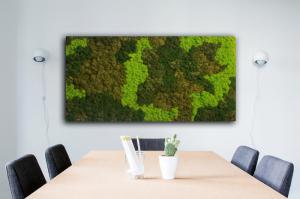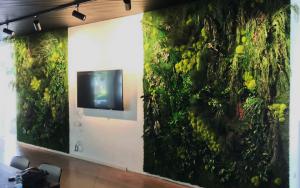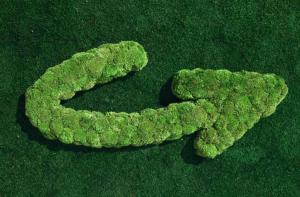What are preserved plants and why are they the newest revolutionary interior design concept?
Americans are in love with these new natural plant walls that do not need water keeping their fresh look for many years.
Preserved plants provide the freshness of natural plants at the convenience of the artificial plants.”
WASHINGTON, DC, USA, September 29, 2019 /EINPresswire.com/ -- There is a need for a more rapid sustainable transition in energy, buildings, transport and cities. — PRESERVED PLANTS USA
Effective energy waste in buildings is key to achieving climate and societal goals that aim at reducing global carbon. Office buildings and residences account for almost 40 percent of global energy-related carbon dioxide and play a major role in a sustainable transformation. Studies show that green buildings reduce day-to-day costs year-over-year.
LEED (Leadership in Energy and Environmental Design) is the most widely used green building rating system in the world. LEED buildings have reported almost 20 percent lower maintenance costs than typical commercial buildings, and green building retrofits typically decrease operation costs by almost 10 percent in just one year.
Available for virtually all building, community and home project types, LEED provides a framework to create healthy, highly efficient and cost-saving green buildings. This is the reason why many builders, architects and interior designers opt for using plants in every new project. But natural plants have high maintenance costs that average at about $500 a week, not including the water consumed.
A new trend has been going on for few years now that aims at introducing a better way of creating a green building at a low cost – preserved plants for interior design1. Preserved plants are 100% natural plants. They are the result of a unique process of plant preservation in which the natural sap is replaced with a special solution, that will preserve their aspect, freshness and scent for many years, with no need of soil, water or sunlight.
Preserved plants, preserved mosses, preserved green walls and preserved trees by Preserved Plants USA, the leading preserved plants company in North America2, are perfectly suitable for the business world: they do not need any kind of maintenance and are not subject to climatic attacks typical of indoor places (lack of light, climate shock due to heat in winter and A/C in the summer) so it is possible to have quality plants throughout the year in a closed setting.
The advantages of preserved plants3 is that they provide the freshness of natural plants at the convenience of the artificial plants. Moreover, the benefits include:
- no need of irrigation
- no need of soil
- no need of light
- no growth: the volume remains constant and controlled
- no dust: unlike artificial plants preserved plants do not have static electricity
- low carbon footprint: preserved green walls are much more efficient than living walls and plants due to their longevity and low energy consumption such as no water irrigation, specific light, soil infestations, trimming and pruning and periodic maintenance.
- live for many years: Plant walls do not need maintenance and their life cycle is close to 10 years.
- they qualify for LEED credits
Having indoor preserved plants in the work space or at home has extremely beneficial effects on your health. Studies have shown that having plants in office environments has an influence on decreasing fatigue, colds, flue symptoms and even headaches as sickness rates fell by more than 60% in offices with plans.Offices with preserved plants and flowers have proven rates of reduced absenteeism, increased workers’ efficiency, productivity and mood. In hospitals, preserved plants presence have shown speedy recoveries. Patients have lower heart rates and blood pressure and require less pain medication. Plants also increase mood and help with anxiety and stress.
Preserved plants are only for indoor use. While they do not need special lighting, to ensure freshness and best life duration it is recommended that you keep them in a air controlled environment with humidity levels not higher than 70%.
Preserved Plants
USA
(202) 892-3992
email us here
1 http://preservedplantsusa.com/
2 http://preservedplantsusa.com/
3 http://preservedplantsusa.com/what-are-preserved-plants/



